Fabulous Green Protein Smoothie
[amd-zlrecipe-recipe:7]
It’s hard to avoid sugar when many common foods secretly contain loads of it. You know that eating an excess of sugar will derail your fitness progress and quickly lead to an increase in body fat, but recent studies are proving that sugar is much more dangerous than we once thought.
That is no joke! So with obesity and heart disease on the line, let’s uncover the 7 common foods that you might not know contain sugar.
[amd-zlrecipe-recipe:10]
Related recipes:
Simple Margarita Pizza
Brussels-Sprout-Lemon Pizza
[amd-zlrecipe-recipe:12]
Related recipes:
Simple Margarita Pizza
Easy-Peasy 2-Ingredient Pizza Crust
[amd-zlrecipe-recipe:11]
Related recipes:
Easey-Peasy 2-Ingredient Pizza Crust
Brussels-Sprout-Lemon Pizza
Fiber is a great way to keep your digestion regular and healthy. Did you know that fiber-rich plants are prebiotics?
Fiber is also important for detoxification (or your body’s normal day to day cleaning processes), helping your body to successfully remove toxins form our bodies. Fiber also helps to slow down the absorption of sugar into our bloodstream, decreasing drastic spikes in blood sugar. Most vegetables, fruits, nuts, seeds, and whole grains contain good amounts of fiber.
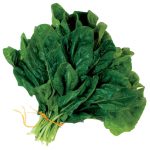 Greens
GreensGreens are rich in fiber, minerals and antioxidants. Baby spinach in your smoothies is an excellent way to add greens. Additionally, baby spinach has a nice soft taste to it, versus kale is has a stronger taste. If you are new to greens in your smoothies start with spinach.
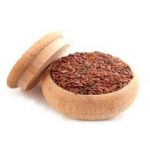 Flax Seeds
Flax SeedsFlax seeds are a good source of both omega-3 fats and fiber. Flax seeds also contain a good amount of vitamin E, which is excellent for the skin. Grinding your flax seeds is a must in order to get the nutritional value of these plant-gems.
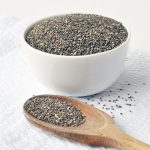 Chia Seeds
Chia SeedsThese tiny seeds pack a nutritional punch. This is the richest plant source of omega-3 fats. They are also packed with minerals and a great source of fiber. They also have a special property in that they swell to up to 5 times their size when added to liquid, so they can help you to feel full faster and for longer.
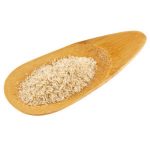 Psyllium Husk
Psyllium HuskPsyllium husk is a seed from the plant Plantago ovata from India. When soaked in liquid it turns into a solid gel-like consistency. It has the ability to help sweep your intestines clean.
Fiber powders are usually made from a mix of plant-based sources of fiber, containing both psyllium husk and flax meal (ground flax seeds). Some contain probiotics and other nutrients. This can be a convenient solution for getting in more fiber regularly. Though probably not needs if you are eating a good amount of fruits and veggies unless you struggle with constipation or eat a lot of meat and cheese.
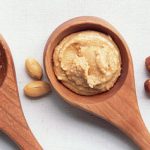 Nut Butters
Nut ButtersNut butters are an excellent source of fiber as well as fat and protein. You can add these to smoothies for an extra kick that makes the drink richer, creamier and more filling.
We are busy. We might not “like” to cook. We know it’s way healthier. Having a well stocked pantry can help!!
Salt and Pepper
Curry powder
Smoked paprika
Ground cumin
Dried thyme
Dried oregano
Dries rosemary
Chili powder
Dried dill
Dried sage
Garlic powder
Ground ginger
Cayenne
Cinnamon
Extra-virgin olive oil
Sherry or wine vinegar
Balsamic vinegar
Mustard
Soy sauce
Mayonnaise
Hot sauce
Ketchup
Fish sauce
BBQ sauce
Rice
Whole grains
Canned beans
Dried beans
Oil-packed tuna
Cannes tomatoes
Coconut milk
Tomato paste
Peanut butter
Nuts/seeds
Stock
Honey or maple syrup
Onions
Ginger root
Potatoes
Garlic
Sweet potatoes
Carrots
Cabbage
Squash
Shallots
Lemons/limes
Apples
Frozen veg and fruit
Eggs
Butter
Yogurt
Parmesan cheese
Other hard cheeses
Ricotta cheese
Goat cheese
[amd-zlrecipe-recipe:13]
And just an addition FYI.
| Principle | Nutrient Value | Percentage of RDA |
|---|---|---|
| Energy | 559 Kcal | 28% |
| Carbohydrates | 10.71 g | 8% |
| Protein | 30.23 g | 54% |
| Total Fat | 49.05 g | 164% |
| Cholesterol | 0 mg | 0% |
| Dietary Fiber | 6 g | 16% |
| Vitamins | ||
| Folates | 58 µg | 15% |
| Niacin | 4.987 mg | 31% |
| Pantothenic acid | 0.750 mg | 15% |
| Pyridoxine | 0.143 mg | 11% |
| Riboflavin | 0.153 mg | 12% |
| Thiamin | 0.273 mg | 23% |
| Vitamin A | 16 IU | 0.5% |
| Vitamin C | 1.9 µg | 3% |
| Vitamin E-γ | 35.10 mg | 237% |
| Electrolytes | ||
| Sodium | 7 mg | 0.5% |
| Potassium | 809 mg | 17% |
| Minerals | ||
| Calcium | 46 mg | 4.5% |
| Copper | 1.343 mg | 149% |
| Iron | 8.82 mg | 110% |
| Magnesium | 592 mg | 148% |
| Manganese | 4.543 mg | 198% |
| Phosphorus | 1233 mg | 176% |
| Selenium | 9.4 µg | 17% |
| Zinc | 7.81 mg | 71% |
| Phyto-nutrients | ||
| Carotene-β | 9 µg | — |
| Crypto-xanthin-β | 1 µg | — |
| Lutein-zeaxanthin | 74 µg | — |